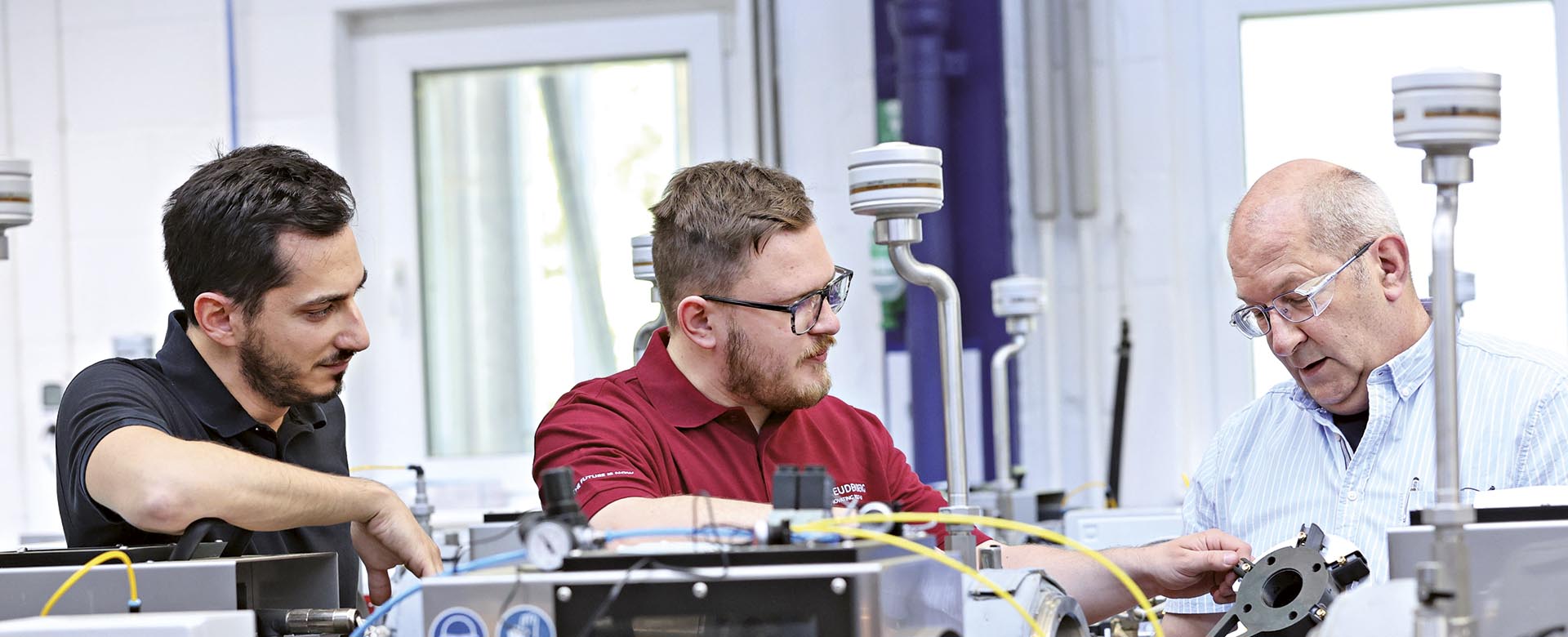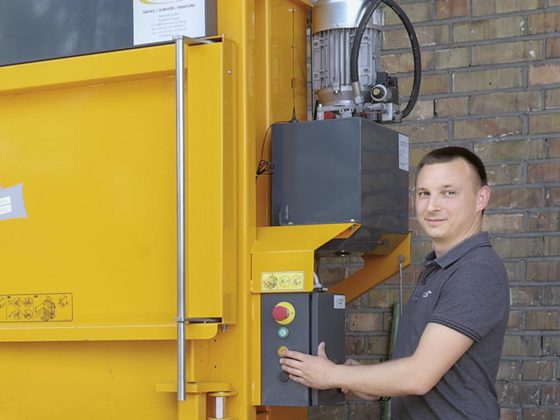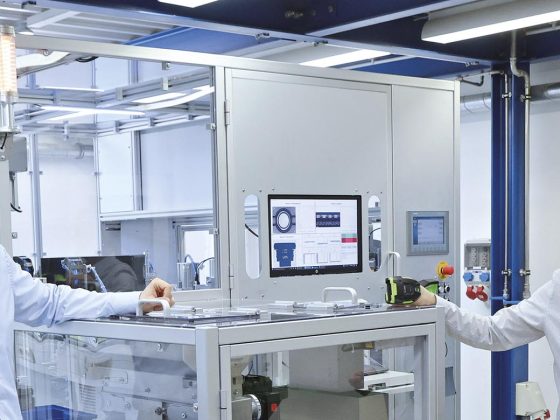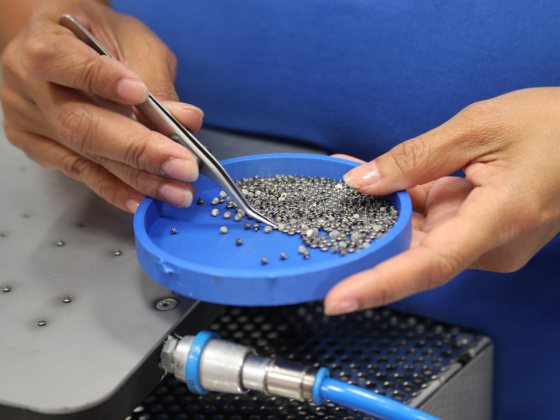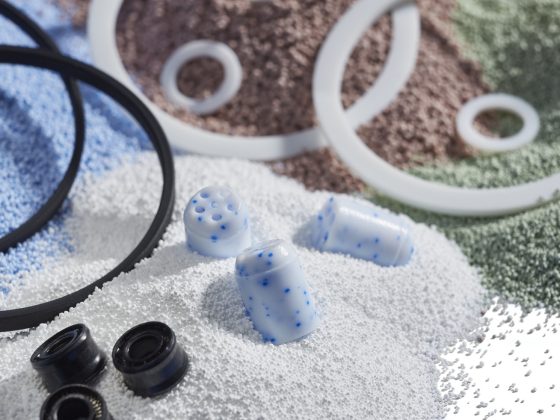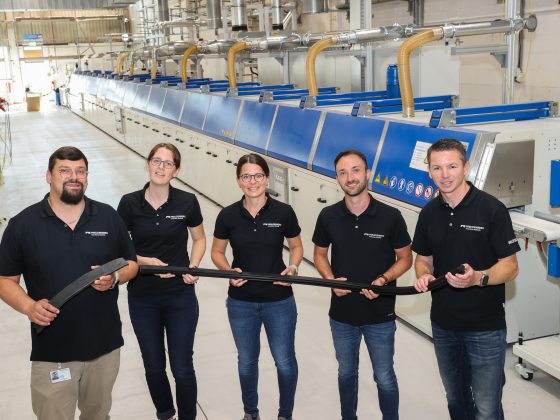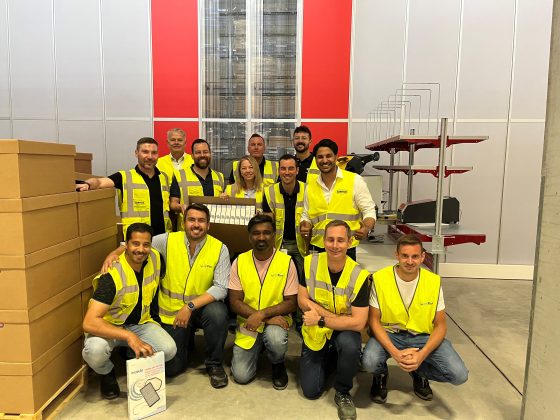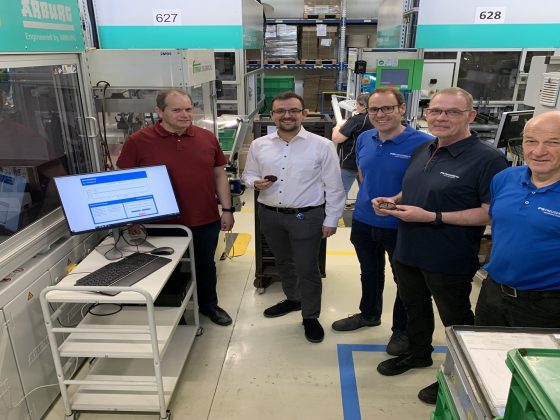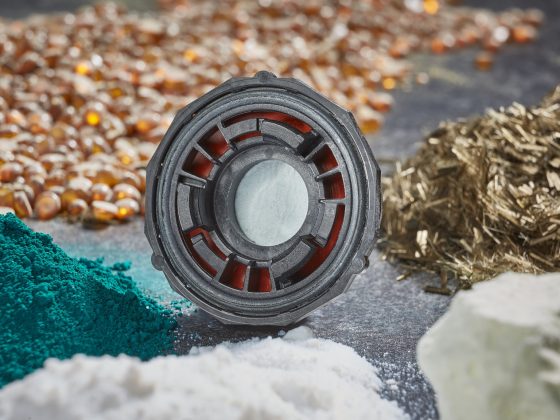At many sites, Simmerring® test facilities are key building blocks embodying the technical expertise, innovation and quality philosophy of Freudenberg Sealing Technologies (FST). The largest of them is located in Weinheim, Germany, and was equipped with new test stands and other equipment this year. The focus was on electric-mobility applications.
Simmerrings® are tested in the rigs for different reasons. For example, prototypes and early samples have to demonstrate their performance under realistic conditions. Do they withstand pressure, cold, water spray, dirt, vibrations, shaft runout, transverse offset or high rotational speeds? What are the limits on the use of new materials and designs? How can friction and wear be reduced? Test facilities provide answers and important insights on the practicality of new solutions. The same applies to requalification tests later in the product lifecycle. “We always try to replicate reality in our facilities,” said Robert Leins, Manager of the Weinheim test facility.
Applications in electric transmissions and motors are posing new challenges for Simmerrings®. Leins cited an example: “High speed once meant more than 10,000 revolutions per minute (rpm). Today, in the electric-mobility field, you have to seal shafts that are rotating at more than 30,000 rpm.” A new test stand has already been ordered that will put Simmerrings to the test at speeds of up to 36,000 rpm.
It goes without saying that seals heat up significantly under these extreme conditions. Lubricating oils with high flashpoints are in demand. Lubricants in electric-mobility applications generally have different characteristics from those used in conventional internal combustion powertrains. Are these low-viscosity lubricants compatible with the sealing materials now in use? Does the system of material, seal design, shaft and oil function the way the application and the customer require? These aspects will all be tested thoroughly.
Electric powertrains also involve undesirable side effects. Here Leins uses a technical term, impedance, to describe the problem and then offers an illustration. “It is similar to a situation where you have been walking on the wrong carpet and wearing the wrong socks. You get an electric shock when you grasp the doorknob. In electric powertrains, charge displacements between housings and shafts can cause tiny lightning strikes. They can result in damage to ball bearings, known as electric or bearing erosion.
Freudenberg has developed a way to prevent this: the electrically conductive nonwoven eCON. The material serves as an electric bridge between the housing and the shaft, guiding the electric current past the bearing. It can be integrated into a seal for this purpose, creating a multifunctional component. “We offer seals with built-in lightning rods,” Leins said. “We can now measure this discharge behavior in a test stand and demonstrate it to customers.”
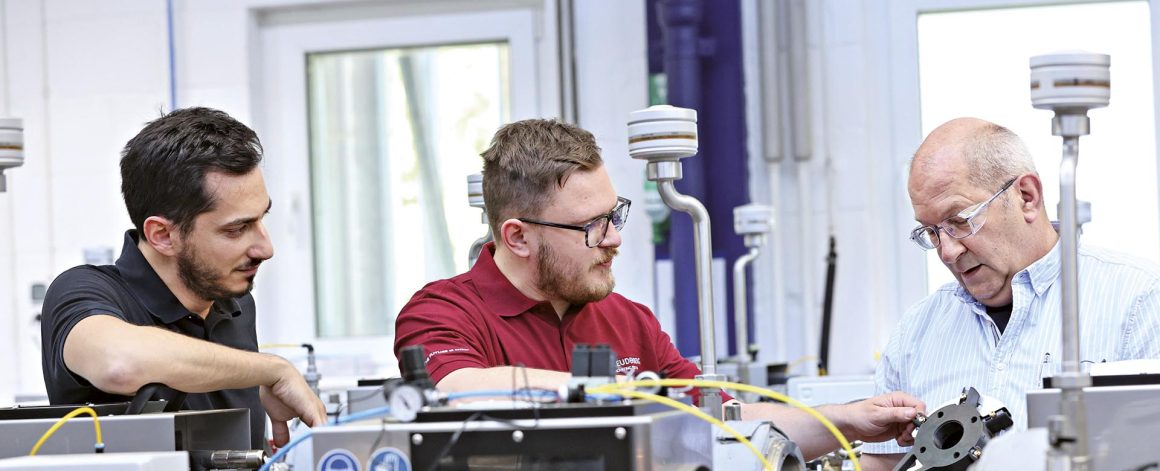
FST is acquiring a new test stand for this. It is also equipping four other existing rigs with this additional measurement option, and the new high-speed test stand also has this capacity. Incidentally, each of the existing systems has six separate testing
points.
But there is more. Many other challenges beyond electric mobility await the nine employees at the Weinheim test facility. This year, the company is investing in a stand for testing oil used in industrial applications – and in equipment to test durability at temperatures ranging from an icy −60 °C to the +180 °C typical of a bakery oven.
In each case, a well-known, special machine manufacturer in the region is designing the computer-supported, freely programmable equipment to meet FST’s specific needs. “In general, we are building up our testing expertise in Weinheim this year for the long term with highly advanced technology, and we are investing more than 1 million euros to do this. The investment underscores the company’s appreciation for our range of services and the high status that they enjoy,” Leins said. FST customers like automotive, equipment and oil manufacturers are happy to rely on FST’s expertise in testing and analysis.
